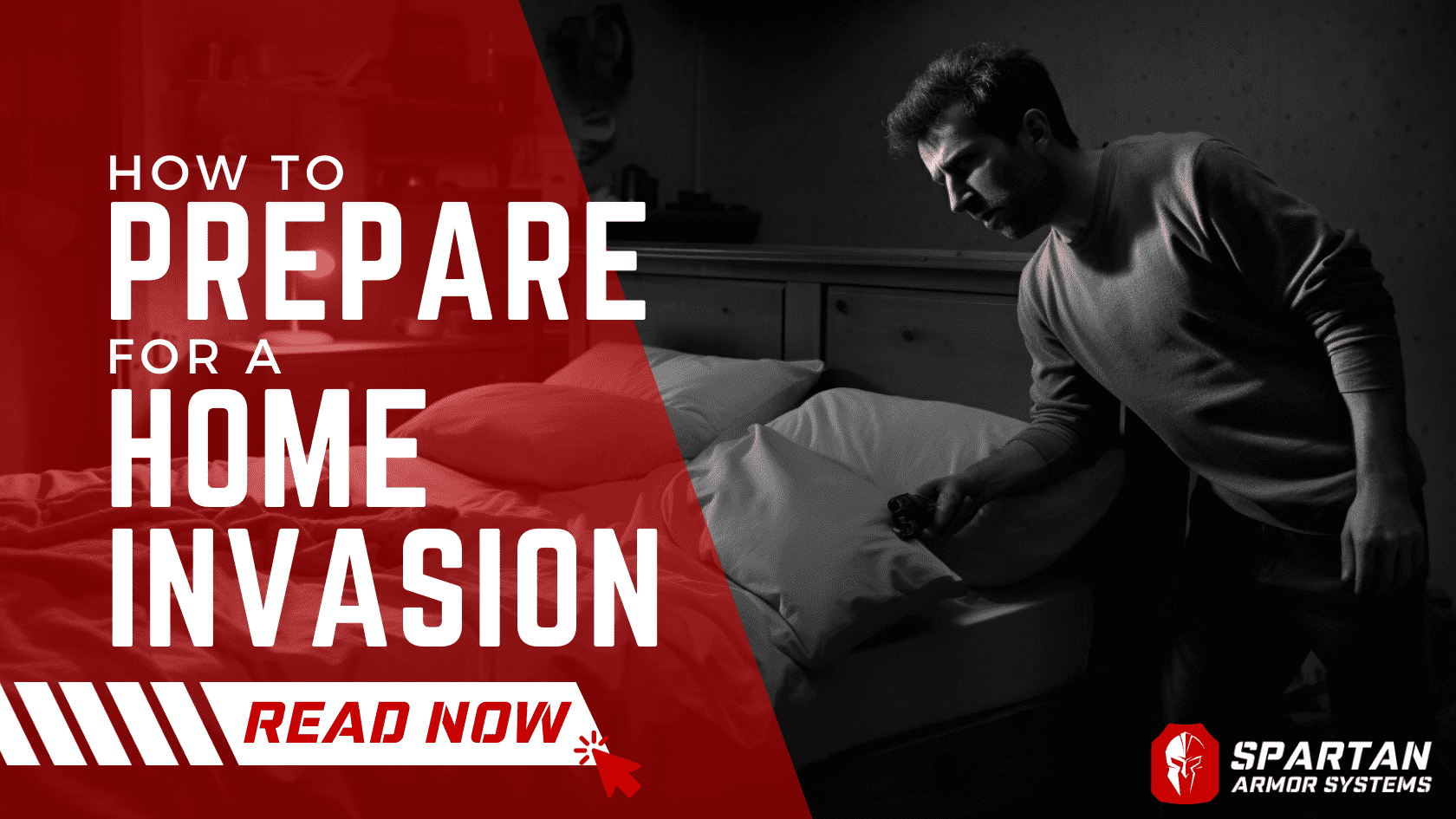How to Prepare for a Home Invasion
Home invasions are the dominant theme in dime-a-dozen horror movies released each fall. But the reality of a home invasion is far from entertaining. And when they happen, they can occur in a series, sometimes targeting specific demographics or regions.
For example, the Seattle Police Department believes the same group of three to seven young men are responsible for a string of home invasions in the south Seattle area during the summer of 2023. One homeowner recalled that the intruders pushed her husband into the corner and put a gun to his head.
Imagine you're a resident in this area. Do you cross your fingers and hope you won't be next? Or do you devise a plan to prepare your family for the worst? In this article, we'll help you determine how to prepare for a home invasion.
But first, what do we mean when we say home invasion?
What is a Home Invasion?
A home invasion is when someone or a group of people breaks into your residence while you're home. This could be accidental, which would be the better circumstance as the criminal may flee when he realizes someone's home. Or it could be intentional, involving a plan to carry out violence.
How is home invasion different from burglary? People often use the terms home invasion and burglary interchangeably, but they are two different crimes.
Burglary typically involves the intent to commit a theft in the absence of the resident.
Home invasion may or may not include the intent to rob or steal but involves the potential for violence, as you would expect when someone initiates confrontation.
A home invasion can be one of the most terrifying things to happen to a person or family. With that in mind, let's cover what you can do to lessen your chances of becoming a victim.
How Can I Prepare for a Home Invasion or Burglary?
We want to implement a multi-layered approach to home invasion prevention and preparation to ensure your family's safety and deter potential intruders. With each simple step below, you'll be making yourself and your loved ones a more challenging target.
1. Research burglary and home invasion statistics. You can do this through various real estate, insurance, and home security websites. Your local police department or sheriff’s office is another great resource. Familiarizing yourself with home invasion statistics can help you understand the most likely threats in your area and motivate you to take necessary precautions to safeguard your family.
2. Fortify your home's exterior. If needed, upgrade to more robust doors, secure windows, and reinforced locks. After all, these are the most likely entry points.
3. Increase exterior lighting. Lighting your house up like it's Christmas is one of the most significant deterrents for break-ins. Criminals don't want you lighting them up when operating at night. That said, most burglaries occur during the daytime, with intruders posing as workers from a utility company or elsewhere.
4. Get a dog. Dogs are another one of the best deterrents for intruders. Dogs genuinely inconvenience those who want to hurt and steal from others. But dogs can be tricked, drugged, or killed. They are a layer of protection. You can’t rely on your dog alone.
5. Check your doors and windows. This one seems obvious, but it does happen. People get complacent and leave doors and windows open or unlocked. One door that we can easily overlook is the garage door. Also, double-check all windows and doors after anyone comes into your home to complete a service.
6. Keep your keys in your possession. Think of how quickly someone can make a copy of a house key. Don’t leave them sitting around unattended, even when handing your car key to your mechanic.
7. Don’t advertise your status. That means making it challenging for people to know your routine and whether you're gone from home. You'd be surprised at how much information someone can gather from the street when you leave your blinds open. Get in the habit of limiting who can see the people and valuables in your home.
8. Install a security system. Alarm systems and surveillance cameras are more available and affordable than ever and can act as an effective deterrent. They can also provide evidence in the event of an intrusion. When your system is in place, eliminate blind spots and add additional cameras where necessary. If money is an issue, at least start by displaying signs indicating that you have a security system operating.
9. Have a reliable home defense weapon. If you’re not already a gun owner, there are some factors you should consider regarding gun safety. We covered several of them in our post Things a Homeowner Can Do to Make Their Home Safe.
10. Invest in body armor for home defense. Having a set of body armor nearby gives you an additional layer of protection. Innovative body armor options designed for home defense are becoming increasingly accessible, lightweight, and comfortable, making them a practical choice for enhancing personal security. Our Body Armor 101 page can get you started if you’re new to body armor.
What To Do During a Home Invasion
We’ve covered what you can do to make it less likely for a home invasion to occur, but the best-laid plans often go awry. Now, let's talk about what happens when you wake up to a home invasion.
Here are the steps to follow:
1. Don’t make a sound. Breathe steadily and silently through your nose to calm yourself and gather your thoughts.
2. Arm yourself. Carefully and quietly, collect what you have available nearby for protection. That may include body armor, your home defense weapon, and a flashlight.
3. Alert the police as soon as practicable. While a phone call is preferable, check out the FCC Text to 911 webpage to determine whether this feature is available in your community.
4. Attempt to gather your loved ones. If you have family in the home, try to gather them in the part of the house you’ve deemed as your stronghold.
5. Avoid an unnecessary fight. This is a tough one for our audience. We know the inclination is to confront the intruder. But your best move is to be defensive unless there's a clear threat of violence toward someone in your home. Do not confront someone and risk your life to protect stuff.
6. Consider escaping. The potential for flight should be part of the plan you go over with your family. Will you stay in your stronghold area or try to escape safely?
The specifics of these suggestions depend on your unique circumstances. We encourage you to tweak them to make them your own and teach them to the members of your household.
Conclusion
It’s crucial to educate your family members about home invasion prevention. Teach them not to open the door to strangers, to be cautious about who they speak to, and not to share sensitive information with people they don’t know. Create a household emergency plan, including a safe meeting spot and instructions for contacting the authorities.
As Ben Franklin said, “By failing to prepare, you are preparing to fail.”
Taking proactive steps to protect your home from intruders demonstrates your commitment to the safety and well-being of your family. Combining research on home invasion statistics, implementing preventative measures, investing in suitable protection such as body armor, and educating your loved ones can create a secure environment that discourages potential intruders and fosters peace of mind.



